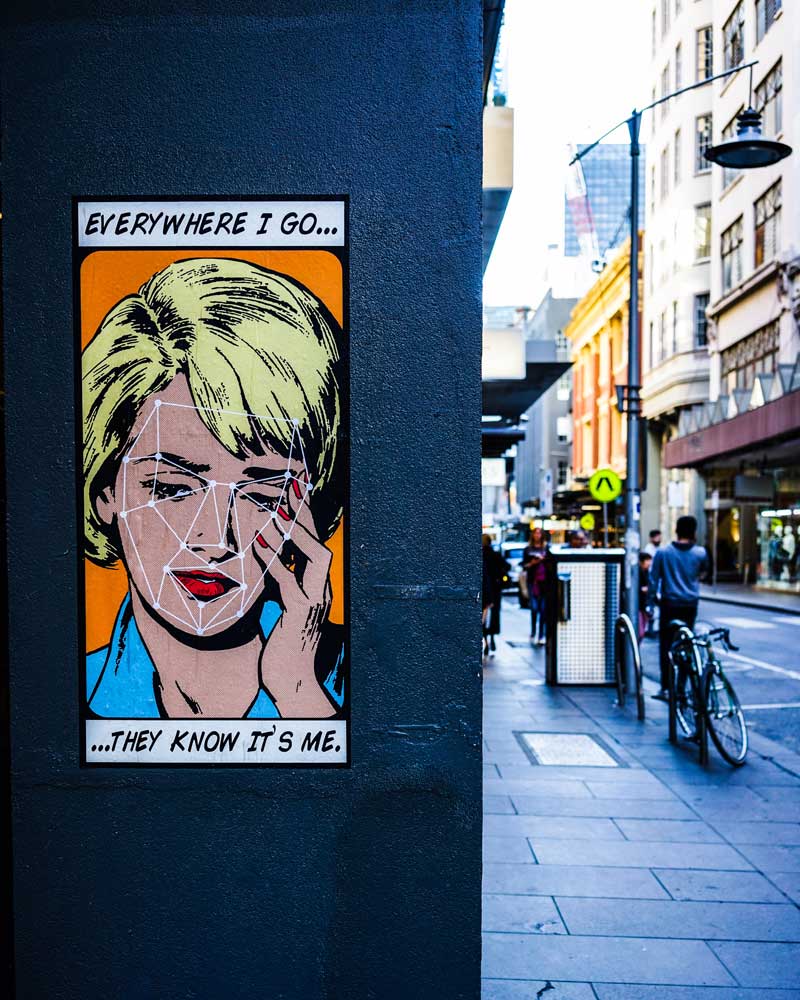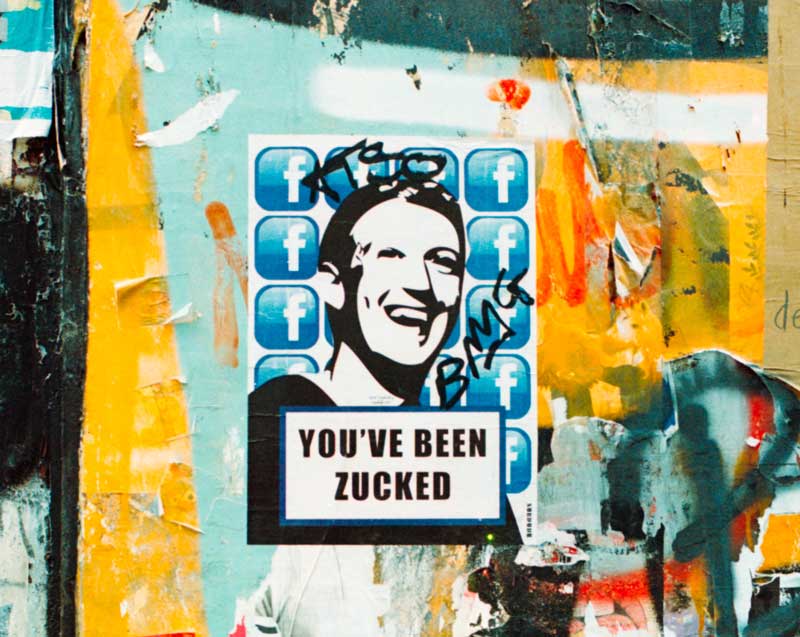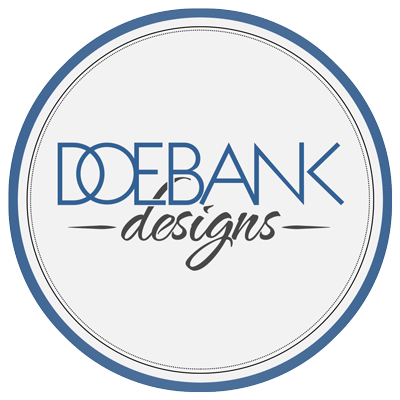I’ve deleted my Facebook account twice before. This time it’s for good.
I’ve long thought that social media in general, and Facebook specifically, has a real knack for bringing out the worst in humanity. Now I’m convinced that I can no longer be a part of the platform. I also will no longer recommend it as a platform to my clients. While it’s a complicated issue in some ways, below are three of the big reasons for my decision.
Why I Won’t Use Facebook Anymore
- Facebook has radically redefined reality around the nature of relationships. It’s so easy to be “connected” to large numbers of people in ways we never were before. Facebook calls these people “friends,” but it doesn’t take much thought to realize that most of the people we’re Facebook friends with aren’t really our friends at all. They’re acquaintances, people we went to high school with, colleagues, random people we have something in common with, our cousin’s husband’s co-worker’s soccer team buddy, even complete strangers. We can’t continue to use an intimate term like “friend” to describe people with whom we have—at best—a tangential relationship without grossly diluting the meaning of friendship.
- Facebook encourages thoughtless interactions, not meaningful connections. Facebook’s algorithms are not built to develop meaningful conversation. They aren’t geared to helping us hear stories from people with different experiences so that our own lives are enriched. Quite the opposite. Facebook’s product (like Google, Youtube, etc.) rewards incessant “liking” of things we already know about or agree with. And when the dreaded “other” comes into our news feed (a different political view, a religious tradition we’ve been taught to fear, or an ex-lover), we are rewarded by the AI for our hostility. We lash out from the comfort of our sofa behind the protection of our screen, and the algorithm revels in our “engagement” with the video or post we’ve seen. It determines our attitude towards the “other” and rewards us with more content to make us feel vindicated in our hostility. It is designed to reinforce our isolation, not build meaningful connections with new points of view.
- Facebook’s entire business model is built on selling us as the product. There’s a maxim that says, “If it’s free, you’re the product.” Nowhere is that more obvious than with Facebook. We pay nothing for this grand service of media, entertainment, and communication. So how does Facebook make money? How can this company support the billions of people using its product? How can Mark Zuckerberg be worth over $72 billion dollars with a platform that we use for free? Because Facebook collects detailed data about every single user and sells that data to advertisers. I know because I was one of those advertisers.
What Are the Benefits of Deleting Facebook?
I often tell people (usually in a different context) that you can’t know you’re in a cult until you’re out of the cult. The same can be said of Facebook. You can’t understand the benefits of being off the platform until you are actually off the platform!
Way back in 2019, the New York Times linked to a study showing some of the following benefits of ditching the social media platform:
- More in-person time with friends and family.
- Less political knowledge, but also less partisan fever.
- A small bump in one’s daily moods and life satisfaction.
- An extra hour a day of downtime.
Additionally, according to reporting from NPR, depression and suicide rates among teens have been rising for the last decade, and it looks like social media platforms–especially Facebook–are likely playing a major role.

What’s Wrong with Facebook Advertising?
In my business, I often worked with clients to develop Facebook ad campaigns targeting their ideal audience. We could (theoretically) send an ad to soccer moms checking Facebook on their phone while stuck in traffic within a short distance from a client’s business. “Tired of the gridlock? Stop in now for 25% off a ________ (smoothie, massage, purse, whatever!).” We could further refine that audience to people who recently bought children’s clothing from an online retailer. Not detailed enough? We can do more!
In one sense, this advertising model is great! No longer do I have to be bombarded with advertising that is totally irrelevant to me. I can see ads that are geared towards the things I really might be interested in. So what’s the problem?
The problem is not simply relevant advertising. The problem is that we are giving away access to who we are in exchange for weakened relationships and increased social isolation. (Did you know they’ve been planning to access and share your medical data?!) This is not just harmless marketing. It’s social engineering. Check out this Washington Post article to see exactly how Russia used the platform to divide Americans and influence the 2016 election.
Look, I am not in the market for a canoe, so it won’t do any good for me to see ads for a canoe. So if you want to build a product that shows me ads for the brand of toothpaste I prefer, then by all means, offer that service to me. If I care that much about relevant advertising, I’ll pay for your service.
What I don’t want is for you to offer me a “free” service that pretends to enhance my meaningful human relationships while actually degrading human decency and further isolating me, all in exchange for seemingly more relevant advertising. It’s not worth it!

I’m Not Alone in My Disdain for Facebook
I’m not alone in my concerns. Tesla’s Elon Musk has deleted all his and his company’s Facebook accounts. Mozilla, the makers of Firefox, stopped their Facebook advertising (though possibly only temporarily). Other major companies and individuals have either deleted their accounts entirely or stopped advertising on the platform.
Our society—our world—is not a better place because Facebook exists.
We find in Facebook a safe place to be the worst of who we are, not an encouraging place to develop into the best of who we can be.
One final thought. There have been wonderful things that have happened as a result of social media connections. I don’t dispute that. This isn’t a zero sum game. Facebook isn’t all good or all evil. However, I think the tradeoff just isn’t worth the price we’re paying as a society. I can no longer, in good conscience, use Facebook or recommend it to my clients.
Deleting Facebook Is a Personal Decision
While I feel strongly about this for myself, and while I will encourage others to #DeleteFacebook, I respect people’s decisions. I know not everyone has such an apocalyptic view of the platform as I do. But just in case you want to learn more and make a more educated decision for yourself, I’ve compiled some very helpful resources for you below.
- A brief article on why Steve Wozniak is joining the campaign to #DeleteFacebook.
- Understand that your data is your property.
- A new study says that quitting the social media network can drastically lower your stress levels.
- CNBC has a good how-to article for when you’re ready to #DeleteFacebook for yourself.
Good luck, and let’s all work better at being more fully human!
